Archive for November, 2012
Poland, Lithuania, Russia: Respect for the dead!
30 Nov 2012Lithuanian police have arrested five people after a tomb containing the heart of Polish national hero Jozef Pilsudski was vandalised in Vilnius on November 24th. The bunch of thugs also draped a banner with the words “Poles die” and left a box with “attention bomb” and “TNT” written on it. 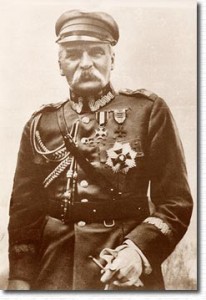
The Polish ambassador in Vilnius, Janusz Skolimowski said he has received assurances that security will be stepped up at the Rossa Cemetery. Pilsudski was born in Zulow near Vilnius, then part of the Russian empire, in 1887. After his death in 1935 his body was buried in Krakow, while his heart was taken to Vilnius.
At the same time, the Vremya news magazine on Russian Channel One reported that in 1953, when Polish authorities decided to dig up the remains of Russian soldiers who died fighting Nazi German forces in Kostrzyn nad Odra in western Poland, so as to re-bury them in large cemeteries around the country, they did so by only partially removing all the body parts.
Last October a research dig found that 102 out of 110 bodies had been re-buried with their skulls or other parts missing.
The Russian news programme claimed the “barbaric” exhumations showed a “monstrous lack of respect for the dead” and reported that Russian authorities had called on Poland to give a full explanation as to why the bodies of “soldiers who liberated Poland from Nazi Germany” were shown so little respect.
“Standards in 1953 differed significantly from those of today,” Adam Siwek from Poland’s state-backed Council for the Protection of Struggle and Martyrdom has already answered.
Source: Polish Radio
Medio Oriente, la posizione russa.
24 Nov 2012 Israeliani e palestinesi hanno i soliti scontri ciclici. In Siria assistiamo ad una guerra tra arabi. Il Cremlino difende nella regione i suoi tradizionali alleati. Questo è il quadro tracciato da Adzhar Kurtov, uno dei massimi esperti russi di Medio oriente.
“A Gaza – sostiene lo specialista dell’Istituto di ricerche strategiche di Mosca – si è osservato una lotta tra impari: una parte (gli israeliani) armata di tutto punto, l’altra (i palestinesi) no. Adesso tutto tornerà come prima, fino ad una prossima campagna”. 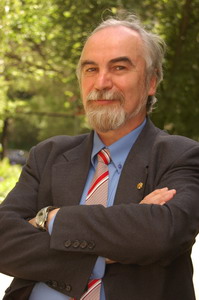
Certo, molte delle armi di Hamas sono state distrutte. Ma quale è il vero ruolo della Russia nello scacchiere mediorientale? “La Russia ha una posizione chiara sulla crisi siriana. Primo: blocco delle interferenze esterne con aiuti ai gruppi armati. Siamo di fronte ad una vera aggressione, non nascondiamocelo. Secondo: ricerca di una soluzione negoziale. Se il recente cambio di Costituzione non va bene serve definire una nuova Legge Fondamentale. Che si tengano le elezioni! Ormai vi sono gruppi di Paese, mi riferisco a quelli del Golfo in particolar modo, che riconoscono un altro governo siriano”.
Mosca mantiene ancora una qualche influenza nell’area? “La Russia non è più l’Urss. Ha meno influenza come hanno dimostrato le recenti ‘primavere’ arabe. Il Cremlino rimane però fermo sulle proprie posizioni. Prima fra tutte: difendere i propri alleati. Poi mettere il diritto internazionale davanti a qualsiasi crisi. E’ vero l’export russo di armi è importante. Ma i nostri primi compratori sono gli indiani e i cinesi”.
Non è che i Paesi del Golfo abbiano colmato quel vuoto di influenza nel Medio oriente lasciato vacante dall’Urss? “Stiamo assistendo ad uno scontro all’interno del mondo arabo. I Paesi più conservatori, mi riferisco al Qatar ed all’Arabia Saudita (entrambi sunniti), cercano di regolare i propri conti con gli sciiti. Le operazioni in Siria mirano a colpire il maggiore alleato dell’Iran (sciita). Come tutte le guerre religiose anche questa è cruenta”.
L’Occidente sembra rimasto in disparte a guardare. “Gli Stati Uniti sono interessati all’indebolimento del regime degli ayatollah ed alla sua sostituzione a Teheran con uno pro-occidentale. Il rischio di perdere il controllo della situazione è alto. L’Afghanistan dei talebani insegna qualcosa, no? A Washington, però, si è convinti di creare ad altri i problemi, non a sé stessi”.
In conclusione, tornando alla questione di Gaza come finirà? “Non credo che nel breve periodo vedremo due Stati, uno israeliano ed uno palestinese. Non v’è alcuna volontà di riconciliazione. Al massimo si potranno congelare i dissidi”.
Венгрия и Россия в постсоветской Европе.
20 Nov 2012 «Лишь 45% населения Венгрии имеет представление об истории и литературе России — такие данные обнаружило исследование общественного мнения, проведенное по просьбе Центра русистики Будапештского университета имени Этвеша Лорандата.
В ходе исследования была опрошена тысяча человек — по репрезентативной выборке. Выяснилось, что 47% населения в первую очередь определяет Москву как центр империи — или Советского Союза». …
Статья – Петер ШОМФАИ – МК 19.11.2012
Poland, Aftermath. A new Jewish pogrom film.
13 Nov 2012“I am very happy that such a film was made in Poland” veteran director Andrzej Wajda said after the film’s press premiere in Warsaw.
Minister of Culture Bogdan Zdrojewski highlighted that: “I admire the courage in taking up such a difficult theme and analyzing, in a cinematic form, a dramatic episode in Poland’s history”. 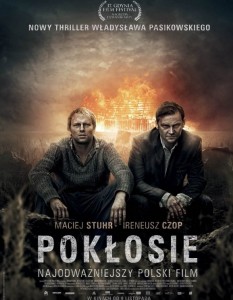
Aftermath is a Polish-Dutch-Slovak-Russian co-production.The cast includes several top Polish actors – Maciej Stuhr, Zbigniew Zamachowski and Jerzy Radziwiłowicz.
Inspired by the 1942 tragedy in which hundreds of Jews were burned alive in a barn, an event long blamed on Nazi Germany, “Poklosie” (“Aftermath”) was directed by Wladyslaw Pasikowski.
“I wanted to tell a story that would interest a broad number of Poles because it is one of the most painful parts of our country’s history,” Pasikowski explained. “We already have a huge number of films on the horrors committed by the Soviets and the Germans, and it’s time to say what bad things we did ourselves.”
The director was inspired by “Neighbours”, a book by Polish-origin US historian Jan Tomasz Gross, which sent shock-waves across Poland after his publication in 2000. The date of the massacre in the village of Jedwabne, some 190 kilometres northeast of Warsaw, has entered Poland’s remembrance calendar.
«Самые длинные газовые трубы. Самые крупные нефтяные сделки. Самый большой флот атомных ледоколов. Россия (точнее, Роснефтегазпроматомфедерация) — энергический чемпион мира. Во всяком случае что касается количества.
А что же разваливающаяся Европа? … 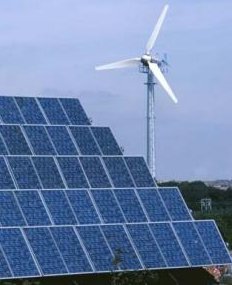
Пока в России идет стремительная централизация энергетических активов в руках госмонополистов, Запад пытается децентрализовать производство энергии. Десятки, уже даже сотни тысяч мелких производителей вместо нескольких крупных концернов. Это можно назвать и демократизацией экономики, но по сути дела происходит техническая и организационная революция…
Россия по сути игнорирует энергетическую революцию остального мира. В России даже по телевизору я не видел того, что вижу всякий раз, когда на самолете приземляюсь в Германии: лес белых ветрогенераторов с огромными винтами. Россия продолжает спать сладким сном нефтегазовой принцессы. Михаила Горбачева здесь не любят, наверное, уже из-за одной-единственной цитаты: «Кто опаздывает, того жизнь накажет».
Статья Штефан Шолль – Московский Комсомолец № 26091 от 13 ноября 2012 г., Stefan Scholl Moskovskij Komsomolets
“This museum is an eloquent declaration of the principles of tolerance toward people and their freedom,” said at the inauguration Israeli President Shimon Peres, 89, who was born in what is now Belarus before his family settled in Palestine in the 1930s. Peres recalled that both his parents had been born in the Russian Empire and everyone at home spoke “Yiddish, Hebrew and Russian”, while his mother had sung him Russian songs. “Here we can see man part with the past and move into the future with hope.” “The museum tells us about two ideologies – communism and Zionism,” he added. 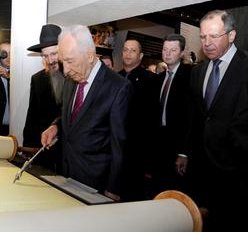
President Vladimir Putin hoped the new museum would become “a place for dialogue and agreement between peoples,” said a statement read at the ceremony by Lavrov. “Any attempt to review the contribution of our country to WWII victory or to deny the Holocaust is not just a cynical lie but a forgetting of history,” Putin’s statement added.
The idea of establishing the museum came from the Federation of Jewish Communities of Russia, which was given the museum building in 2001. Grafts’ renovation and expansion of the 1927 Konstantin Melnikov’s bus depot have transformed the space into the world’s largest Jewish museum. The museum occupies over 8,500 square meters on the Moscow Bakhmetyevsky Garage which was formerly an art gallery run by socialite Dasha Zhukova.
The museum aims to demonstrate Jewish cultural traditions and customs and also show the history of Russia through the prism of one ethnic group, organizers say.
Like its ‘twins’ in New York, Paris and Berlin, the Moscow museum highlights historic Jewish documents, photographs and letters spanning a period of more over two centuries.
Jews were repressed in Tsarist times when starting in the late 18th century they were largely forced to live in an area of the western Russian empire known as the “Pale” where many lived in impoverished towns known as shtetls.
Hitler‘s armies in World War II then occupied most of today’s Belarus, Ukraine as well as western Russia, leaving Soviet Jews exposed to the full brunt of the Nazi killing regime.Heavily targeted during the 1930s purges, Jews suffered even after World War II in the USSR under Stalin’s rule, especially when the purported discovery of a so-called “doctors’ plot” against him unleashed a wave on anti-Semitic hysteria.
Nonetheless Jews have over centuries made a huge contribution to Russian culture, ranging from the writer Sholem Aleichem, the Vitebsk-born artist Marc Chagall or the poet Osip Mandelstam who died in the Stalin camps.
Sources: Ria Novosti, EJR.
Russia and the whole Eastern Europe are observing the last days of the US presidential campaign with great interest. Barack Obama and his challenger, Mitt Romney, represent an opposite approach to the problems of the region.
In 2009 the now outgoing president launched the “reset” policy in order to restore the relationship with the Kremlin after the war in Georgia. During his campaign the candidate of the Republicans has promoted Russia to “number 1 geostrategic foe of the United States”. 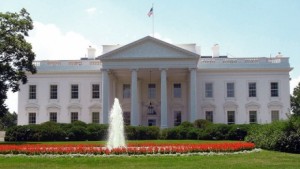
So, the question is: if Romney wins, will Europe come back to the Cold War epoch?
The answer is negative. First of all, even if Russia is considered a “resurgent” power by the experts it has finally lost the status of superpower held by the Soviet Union until 1991. At the moment, it has a more limited weight in the world’s political, economic, and military affairs.
Moscow is no more a hated enemy, as it was for four decades in the 20th century. It is a useful ally in places like Afghanistan, but also a partner, who has often criticized the Western positions on issues like Syria or Iran, and an energy supplier to the US strategic reserves.
In short, Russia is not a threat for Washington or the European Union as it was the Soviet Union. Today’s challenges in the era of the globalization are completely different from those of the past.
Mitt Romney killed two birds with one stone. He used that old fashioned definition, because he simply wanted to attack Obama and its foreign policy, not Russia, that remains – anyway in elderly American people mind – an adversary.
Barack Obama promised the Russians to be more “flexible” after the elections. In 2009 he started a new period in the bilateral relationship, but he did not invite Moscow to join from inside the regional anti-missile Shield in the future controlling Headquarters.
That would represent the decisive recognition of the successful end of the Russian democratic evolution which began in 1991. Former Kremlin’s European satellites, now US allies, are still hesitant to make that historic step. Protests in Moscow and the repression of the dissent will further delay any other openings.
Nonetheless, in these four years there have been positive changes in the US-Russian relationship. Moscow and Washington signed the nuclear arms control treaty in 2010 and this year the White House has supported Russia’s accession to the World Trade Organization.
Vladimir Putin has recently described Barack Obama as “a genuine person” who “really wants to change much for the better”. The Russian leadership, including Dmitry Medvedev, has good personal relationship with him and, if it were able to vote the Kremlin would choose Obama.
But if Romney is elected president it will not be a catastrophe. From the internal political perspective Romney’s victory would guarantee president Putin a useful adversary determined to subvert the state of rule in the Motherland and former USSR. And it would be easier to justify the astronomically expensive 10-year rearmament plan for the armed forces ($770 billion), especially now when the economic crisis is narrowing and social problems are becoming more serious every day.
Giuseppe D’Amato
Welcome
We are a group of long experienced European journalists and intellectuals interested in international politics and culture. We would like to exchange our opinion on new Europe and Russia.
Categories
- Breaking News (11)
- CIS (129)
- Climate (2)
- Energy&Economy (115)
- EU Eastern Dimension (85)
- Euro 2012 – Sochi 2014 – World Cup 2018, Sport (43)
- Euro-Integration (135)
- History Culture (198)
- International Policy (261)
- Military (74)
- Interviews (18)
- Italy – Italia – Suisse (47)
- Odd Enough (10)
- Poland and Baltic States (126)
- Religion (31)
- Russia (421)
- Survey (4)
- Turning points (4)
- Ukraine (176)
- Российские страницы (113)
Archives
- November 2020
- October 2020
- September 2020
- August 2020
- July 2020
- May 2020
- April 2020
- March 2020
- January 2020
- December 2019
- November 2019
- October 2019
- September 2019
- August 2019
- July 2019
- June 2019
- May 2019
- April 2019
- March 2019
- February 2019
- December 2018
- November 2018
- October 2018
- September 2018
- August 2018
- July 2018
- June 2018
- May 2018
- April 2018
- March 2018
- February 2018
- January 2018
- December 2017
- November 2017
- October 2017
- September 2017
- August 2017
- July 2017
- May 2017
- March 2017
- January 2017
- December 2016
- November 2016
- October 2016
- September 2016
- July 2016
- June 2016
- May 2016
- April 2016
- February 2016
- January 2016
- November 2015
- October 2015
- September 2015
- June 2015
- April 2015
- March 2015
- February 2015
- January 2015
- December 2014
- November 2014
- October 2014
- September 2014
- August 2014
- July 2014
- June 2014
- May 2014
- April 2014
- March 2014
- February 2014
- January 2014
- December 2013
- November 2013
- October 2013
- September 2013
- August 2013
- July 2013
- June 2013
- May 2013
- April 2013
- March 2013
- February 2013
- January 2013
- December 2012
- November 2012
- October 2012
- September 2012
- August 2012
- July 2012
- June 2012
- May 2012
- April 2012
- March 2012
- February 2012
- January 2012
- December 2011
- November 2011
- October 2011
- September 2011
- August 2011
- July 2011
- June 2011
- May 2011
- April 2011
- March 2011
- February 2011
- January 2011
- December 2010
- November 2010
- October 2010
- September 2010
- August 2010
- July 2010
- June 2010
- May 2010
- April 2010
- March 2010
- February 2010
- January 2010
- December 2009
- November 2009
- October 2009
- September 2009
- August 2009
Our books




